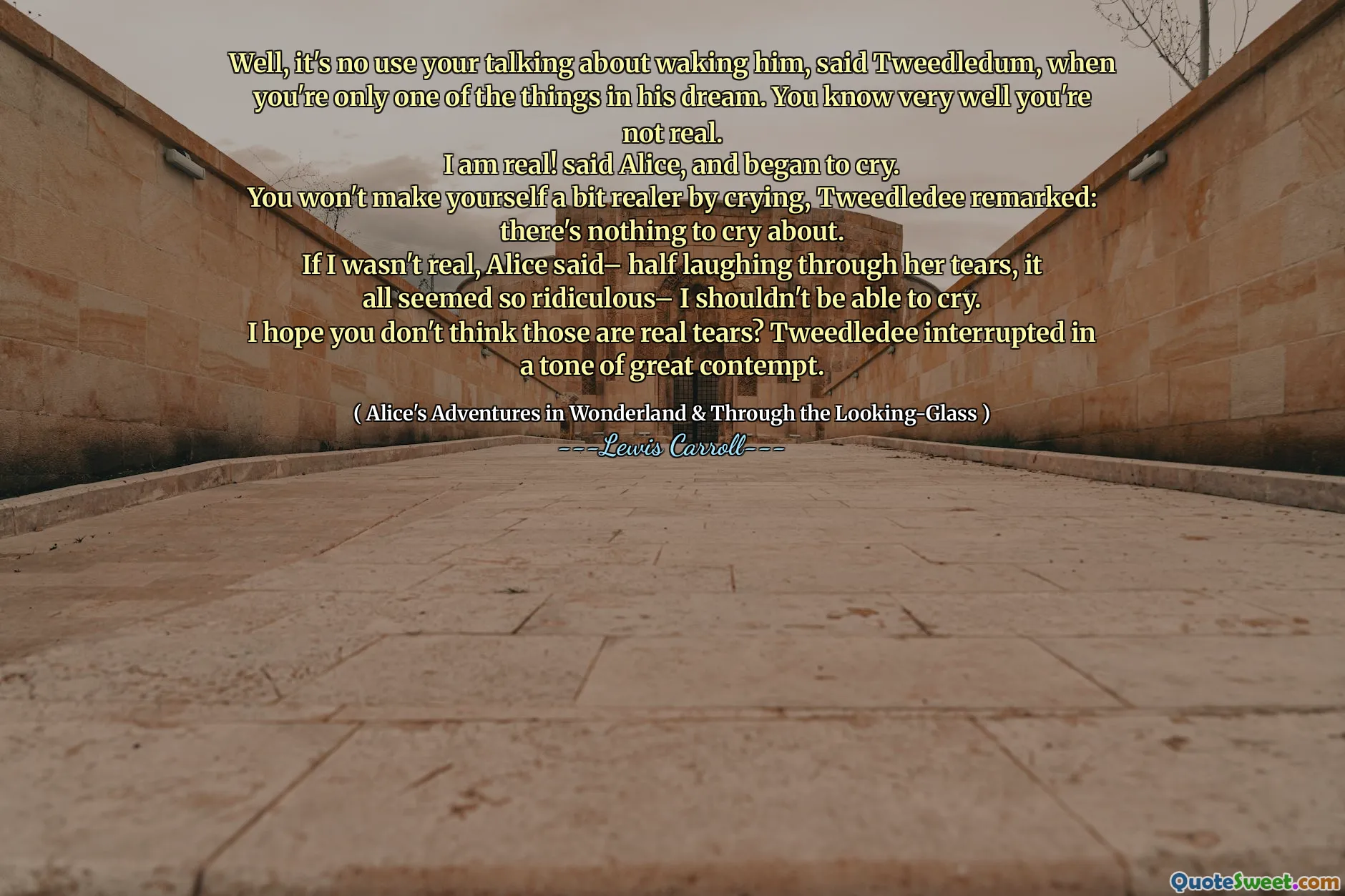
Well, it's no use your talking about waking him, said Tweedledum, when you're only one of the things in his dream. You know very well you're not real. I am real! said Alice, and began to cry. You won't make yourself a bit realer by crying, Tweedledee remarked: there's nothing to cry about. If I wasn't real, Alice said– half laughing through her tears, it all seemed so ridiculous– I shouldn't be able to cry. I hope you don't think those are real tears? Tweedledee interrupted in a tone of great contempt.
In a conversation between Alice and Tweedledum, Tweedledum dismisses Alice's attempts to wake him, implying that she is just part of his dream and not truly real. Alice insists on her reality, which makes her begin to cry, believing her tears prove she is real. Tweedledee responds dismissively, suggesting that tears do not necessarily validate her existence and considers her tears to be insincere or mere appearances.
Alice, half-laughing through her tears, argues that if she were not real, she couldn't cry at all, highlighting her desire to prove her genuine existence. Tweedledee contends, however, that her tears are not genuine, showing a dismissive attitude towards her sincerity and reality, emphasizing the playful yet philosophical debate about what constitutes reality and authenticity in their strange encounter.





